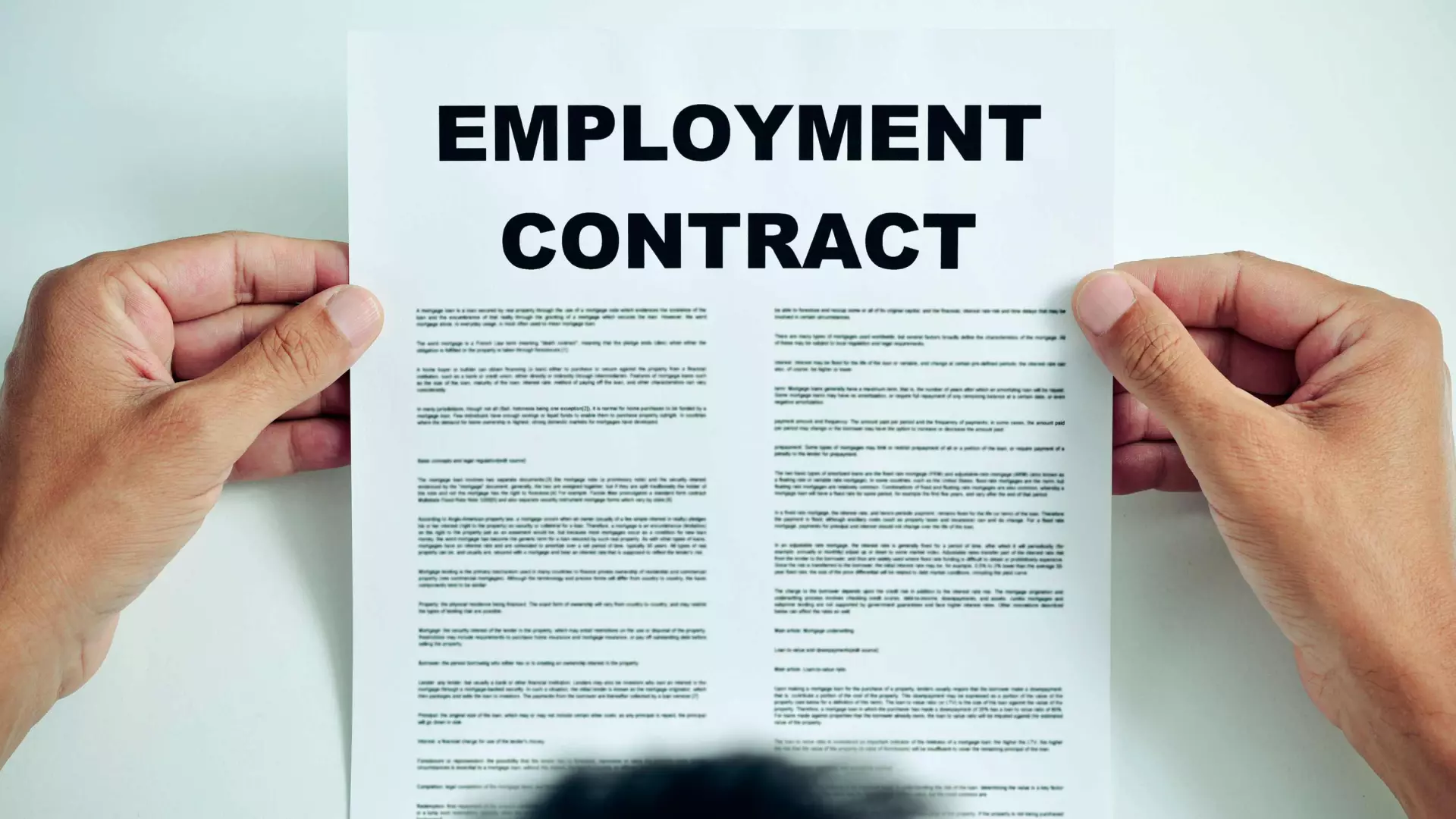Article
Is My Nanny an Employee or Contractor?

Deciding if your nanny is an employee or contractor
The question is a basic yet vital one. You need to answer it the moment you begin to shortlist potential candidates who might become your new nanny. Why?
Take a look at a front-page on the Australian Taxation Office (ATO)’s website and alarm bells should start ringing. It says this, “You must check if they are an employee or contractor. It's important because penalties and charges may apply if you get it wrong.”
So how can you tell the difference between these two types of workers? If you’re asking yourself, “Is my nanny an employee or contractor?” read on for the complete lowdown.
Your Obligations as an Employer
Ignorance or an accidental mistake is no defence if you start out without double-checking the status of your nanny or simply get it wrong. That’s because the way you pay your nanny has consequences in terms of tax, super and other obligations.
It’s likely that your instinct will tell you if your relationship feels like that between an employer and an employee. If it does, then the chances are that it is. For example, you may have control and direct the work your nanny does.
In most cases, your nanny will come under the category of employee, especially if you’re paying them an annual salary or an hourly, daily, or weekly rate. As the employer, you will have to sort out payroll issues like payslips, holiday pay and register for PAYG.
Paythenanny.com.au is there to do all this for you. We can also clarify questions around employment status. For example, your nanny may say they have an Australian business number (ABN). This would not necessarily mean you’d be hiring them as a contractor.
Some Questions That Need Answering
There are some dependencies that will contribute to deciding the employment status of your nanny. These include the answers to the following questions:
- Will your nanny provide most of the equipment they need to do their work?
- If they do, will you pay them an allowance for that service?
- Will you pay your nanny for a task they must complete in a specific timeframe?
- Has your nanny given you a quote for this?
Even if the answer to all or some of these questions is “yes,” it may still be that your nanny will be an employee.
If you will be allowing your nanny to pay someone else to do their work for them, things may be more clear-cut and you should answer these further questions:
- Will this be part of the written agreement between you and your nanny?
- Will your nanny be free to arrange for others to do all or some of the work?
- Will your nanny be responsible for the person doing the work for them?
- Will your nanny pay the person to do their work?
If you answer “yes” to all these questions, then your nanny would more than likely be a contractor.
My Nanny’s an Employee but I Treat Them as a Contractor. What Next?
It’s possible that a nanny you’re thinking of hiring may ask that you engage them as a contractor. Just because they do, does certainly not mean that you should.
They may also tell you that others have hired them as a contractor before. Precedence is not proof that their employment status was correct.
If you pay someone with a contract that mainly concerns their labour, you have a legal duty to pay super contributions for them.
It is against the law for employers to treat their employees as contractors. By doing so they would be failing to meet their tax and super obligations. They would also not be giving their nannies their employee entitlements.
The ATO may also see this as an attempt to undercut others and unfairly save yourself money. It’s a risky business and the ATO encourages those who suspect someone is incorrectly treating an employee as a contractor to report them.
Penalties can be hefty. These could include:
- A PAYG withholding fine for failing to deduct tax from worker payments
- Super guarantee charges made up of interest and fees
- Extra administration costs payable to the ATO
- Additional super guarantee charges of up to 200 percent
My Nanny Is My Employee So What Do I Need to Do?
Clarity is key. You must have a thorough contract that leaves nothing in doubt and clearly states:
- The hours your nanny will work
- The duties you expect your nanny to carry out
- How you will pay your nanny and the rates of pay
- Your nanny’s leave entitlements
- What happens on public holidays and weekends
You must make sure that both you as the employer and your nanny as the employee sign the contract. You will also have to:
- Withhold tax (PAYG withholding) from their wages
- Report and pay the withheld amounts to the ATO
- Pay super, at least quarterly, for eligible employees
- Report & pay fringe benefits tax (FBT) if you offer your employee fringe benefits
You will be responsible for issuing detailed payslips as well as sorting out holiday pay and sick pay. You should also make sure that you have adequate employer liability or workers’ compensation insurance.
If you are going to be asking your nanny to use your car, you will also need to ensure your car insurance policy covers them. This is particularly important in instances when they do not hold an Australian drivers’ licence or are under the age of 25.
Pay Your Nanny Correctly
Understanding how to pay your nanny along with the paperwork that goes with it is time-consuming. It’s also fraught with lots of potential pitfalls. This is a moment to take stock and ask yourself if the admin involved is really something you want to take on.
There is a solution that’s great value and efficient. It will also reduce your stress levels allowing you to concentrate on the more important issues.
Paythenanny.com.au is your nanny payroll one-stop-shop. We take care of everything from payslips to nanny tax and all for the price of a few beers each month. Get in touch with us now to find out we can help with all your nanny payroll needs

Are nannies, caregivers and au pairs independent contractors or employees?

Superannuation Changes in Australia

Navigating the Australian Payroll System: Essential Tips for Nanny Employers

2025 Guide to Employment Contracts for Nannies in Australia
